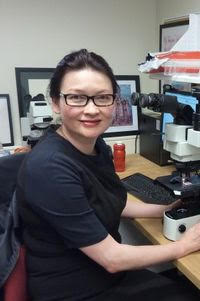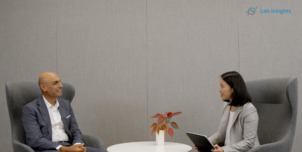This article is part of a series of case studies on the use of NGS and digital tools to drive precision oncology in the Asia Pacific region. Scroll to the bottom of the article for the full list.
Across the Asia Pacific region, growing use of next-generation sequencing (NGS) in clinical laboratories is driving major improvements in cancer testing. Pathologists are sequencing tumours to help diagnose cancer more accurately, identify key prognostic markers, guide treatment selection by detecting mutations associated with targeted therapies, and even match patients to clinical trials. Sequence data is also being used to keep watch over patients in remission, offering early warning signs in cases where cancer returns.
For all these reasons, pathologists are playing an increasingly critical role in caring for patients with cancer. This is most notable in the rise of molecular tumour boards (MTBs), which in some hospital facilities are complementing or even replacing traditional tumour board meetings.
Subscribe to LabInsights’s latest news and update
Join over 3,000 HCPs receiving insights in their inbox every week.

Thank you.
You have successfully subscribes to the newsletter!
Didn’t receive the email? Be sure to check your spam folder too!
You can contact [email protected] for further assistance
Alternatively, you can browse more content from ThoughtLeadership
What are MTBs?
Like standard physician board meetings, MTBs are gatherings of experts focused on addressing specific patient cases. The “molecular” part of MTB is an indication that these meetings pay special attention to molecular findings — including NGS data and results from other relevant molecular assays — and how that information can guide treatment plans.
MTBs may bring together oncologists, surgeons, genome scientists, molecular pathologists, pharmacology experts, genetic counselors and other specialists. These teams typically review all of the patient’s clinical data alongside the molecular profile of his or her cancer, in some cases comparing somatic mutations found in the tumor to germline mutations detected by sequencing the patient’s own genome.
How are MTBs being used across the Asia-Pacific region?
MTBs are relative newcomers in cancer care. They encompass the same principles of historical clinical care discussions, with the addition of advanced molecular data available today. For our purposes, we’ll focus on some examples of how MTBs have been implemented in labs in the APAC area.
Australia. Prof Svetlana Cherepanoff, an ocular histopathologist at St Vincent’s Hospital and SydPath in New South Wales, is part of a group that runs the sole MTB for ocular oncology in Australia. She has firsthand experience with the benefits of molecular profiling and multidisciplinary MTBs there. An MTB for uveal melanoma, for example, successfully integrated information multiple data sources, inspiring SydPath to apply for grants to turn this MTB model into a self-sustaining one. Prof Cherepanoff notes that digital tools have sped up many processes in her MTBs, increasing their frequency from just six per year to eight in four months.
India. At Manipal Hospital in Bengaluru, Dr Amit Rauthan notes that MTBs are very important for patient care, but notes that their success depends on all clinicians being able to assemble and share data — something greatly aided by digital tools. “MTBs are very useful and can unearth the knowledge needed to understand NGS reports, allow questions to be asked, and make information accessible,” he says, adding that even a 10-minute session can make a difference. “It doesn’t need to be a detailed MTB and it can be a very quick one for each report.”
Singapore. At the National University Cancer Institute, Singapore (NCIS), weekly MTBs allow experts to review molecular profiling data on a regular basis. The team consists of tumour site-specific and early phase drug development experts who focus on each patient’s unique mutational profile to develop a treatment plan. “Every cancer is a rare disease due to the multiplicity of the mutational profiles that exist in each patient’s tumour,” says Dr David Tan, an oncologist at NCIS. “This mutational data also facilitates biomarker-driven drug development in a way that is ethnically agnostic, which is especially important in Asia.”
South Korea. Prof Jee Hyun Kim, a breast cancer specialist at Seoul National University Bundang Hospital, participates in MTBs to help explain NGS results and the importance of applying this data to more cancer cases. Prof Kim has seen profoundly positive outcomes in her own patients, which has significantly increased her own use of NGS data. She hopes that strong levels of evidence will be incorporated into guideline recommendations and reviews to show how NGS-guided therapies improve survival.
Taiwan. At China Medical University Hospital, Dr Jan-Gowth Chang says MTBs are conducted once or twice a month to focus on patients with poor NGS results that require further explanation by pathologists, bioinformaticians, laboratory technicians and other healthcare professionals. Information from MTB meetings is shared through reports that can be downloaded electronically from medical records or the hospital’s system. An in-house bioinformatics team regularly updates its databases so treatment recommendations and drug information can be added to NGS reports.
How to get an MTB started
While MTBs may seem intimidating to get started, even small steps can make a difference. Educating clinical partners about the value of NGS data in guiding a patient’s cancer diagnosis and treatment is one key step, and it can be accomplished by sharing a few relevant scientific papers or clinical case studies.
Partnering with other departments — or even other health systems — may also help pull together the expertise needed for a useful MTB discussion. Of course, simply adding a molecular pathologist to existing tumour boards can be enough to spark conversation about the utility of incorporating NGS data for cancer cases.
For more information on how to move forward with your own MTB, check out these great resources:
- This helpful review describes the basics and clinical utility of MTBs
- Tips from a US group about how they implemented MTBs in a cancer center
- An assessment of the current state of MTBs from scientists in The Netherlands
To learn more about the evolving role of next-generation sequencing, molecular tumour boards and clinical decision support tools in cancer care, check out these case studies:











